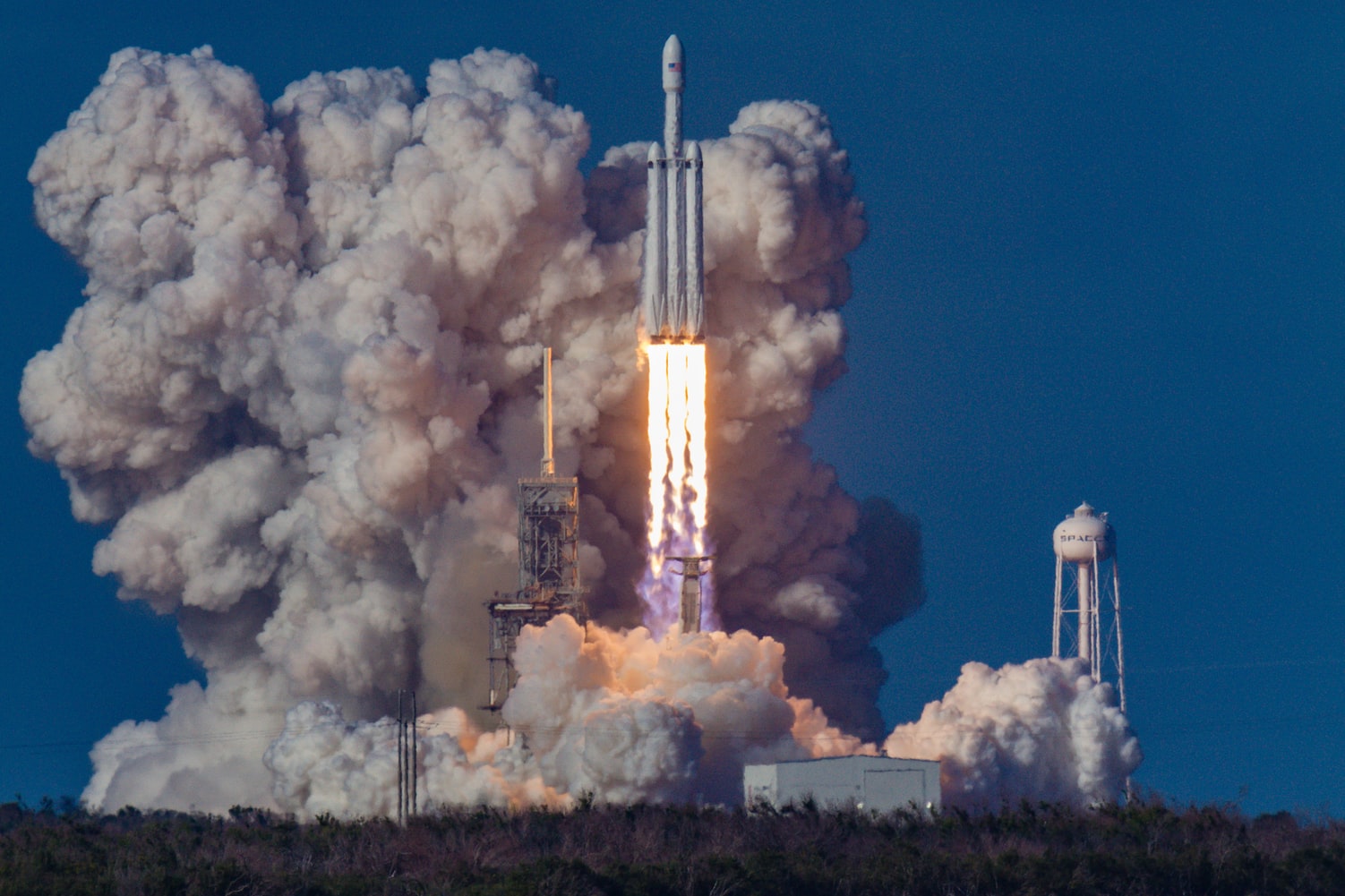Space exploration has become a huge topic in recent years. However, growing concerns for the environment and space travel have continued as space launches increase. Here is everything you need to know about space travel and it’s impacts on the planet.
The first space flight was May 5th, 1961 on the Mercury Freedom 7 whose pilot was astronaut Alan B. Shepard. Fast forward to today and we have mega-rich billionaires funding their own space travels. You can even buy your own ticket for the right price.
With rapid advancements in technology, space travel has not only increased but is now safer, faster and can cover more distance. It’s not just NASA anymore either. Elon Musk and Jeff Bezos both have their own space exploration companies, and that’s only in America. Countries all over the planet are entering the space tourism market. However, with more rocket launches the concerns for the environment and space travel grow as well.
The Environment and Space Travel
If cars, planes and boats negatively impact the environment it is no question that space travel does as well. There are many benefits when it comes to space voyages but the question still remains, is the effect on the planet worth it? Let’s take a look at the environment and space travel.
What Does Space Travel Teach Us?
Human space exploration has brought us immense amounts of information that has been hugely beneficial to our planet. It allows us to answer fundamental questions about not only our planet but our solar system and the universe. Here is what space travel can teach as well as how it benefits us:
- How to protect the planet and care for the environment with satellites.
- Improve health care with experiments in space.
- Improve day-to-day lives with satellites, weather forecasting and global communications.
- Enhance the safety on earth with satellite data to predict natural disasters.
- Creates technical and scientific jobs in the space sector.
- Scientific discoveries that challenge us and break boundaries.
With all the amazing discoveries and benefits from space travel, it’s challenging to see the downside. However, the downside is that as space exploration or tourism increases, the planet may face more negatives than positives.
How Do Spaceships Work?
In order for spacecrafts to work, they rely on massive rockets. These rockets require huge amounts of fuel to propel them through the Earth’s atmosphere. Throughout history, many spaceships use kerosene as fuel. However, today liquid hydrogen is the primary fuel for the American Space Program. Hydrogen is a clean fuel although the manufacturing process is not energy efficient or good for the environment.
Unfortunately, in order to create hydrogen it requires using fossil fuels like gas and coal. On the plus side, scientists are coming up with newer and cleaner ways to create fuel. Green Hydrogen is made from water electrolysis. This process involves using electricity to extract the naturally occurring hydrogen from water. The cool thing about Green Hydrogen is that is removes as much Carbon Dioxide (CO2) from the atmosphere as it puts into it. However, this method is not cost efficient and only accounts for 1% of the worlds hydrogen production.
Are Space Launches Bad For The Environment?
Currently, rocket launches don’t occur enough to have a major impact on the environment. There is more CO2 emissions from cars, planes and boats than of spaceships or satellites. However, as the space travel industry continues to grow there is growing concern on how it will impact the environment.
As launches become more regular the concern for the environment and space travel increase. SpaceX, Blue Origin and Virgin Galactic are just some of the players in the new age race to space. Additionally, some of these private companies want to create a space tourism industry. This would mean almost anyone could buy a ticket and head off into outer space.
The biggest concern for a growing space exploration industry is the potential damage to the ozone. The ozone layer helps shield the Earth from the Sun’s harmful UV rays. The damage would come from not only fuel emissions but air conditioners and heating for passengers on board. As the rockets are launched and reach the atmosphere they emit things like nitrogen oxide. When this is released it contributes to the depletion of the ozone.
Is There A Greener Option For Space Travel?
In addition to liquid hydrogen fuel, another option is bio-fuels. These bio-fuels are made from an organic material known as biomass. Biomass comes from plant materials and animal waste.
Virgin Galactic’s spaceships uses a synthetic rubber as fuel which burns into nitrous oxide. This fuel pumps black carbon into the stratosphere and contributes to ozone depletion. Additionally, Virgin says it wants to conduct 400 flights a year.
Comparatively, Blue Origin uses the much cleaner, liquid hydrogen and liquid oxygen. These fuels combust into water vapor and causes 100 times less ozone loss and 750 times less climate affects than Virgin’s. The biggest concern for Blue Origin is that it’s fuel production is not energy efficient.

@marekpiwnicki
Bottom Line
All in all, the environment and space travel is mostly a waiting game. There isn’t enough information on just how big the space tourism industry could be. Due to current popularity we can speculate that it isn’t going anywhere. However, we are in a time of climate change awareness and starting space tourism activities may be in bad taste or poor timing.
There are green options for space travel. For instance liquid hydrogen and bio-fuels can help reduce carbon emissions. However, there is draw backs like how energy efficient are these fuel options? Luckily, because of the climate crisis companies are forced to take a much deeper look into ways that minimize pollution. Additionally, it opens the doors for technological advancement in cleaner energy and fuel alternatives.
Follow us on Instagram!
Stay Connected
